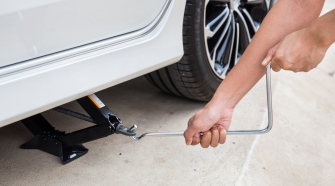In a marked difference from the usual car insurance that is bought by people who own and drive cars, non-owner car insurance, as the term suggests, is an insurance product that is specifically designed for people who drive cars but do not own one. This means that if you are driving a vehicle that is owned by someone in your family, a friend, or even a rental agency, and manage to bang it up, the insurance company will pay for the property damage as well as any personal injury claims.
The Extent of Coverage of a Non-Owner Insurance Policy
Also referred to as non-driver insurance, a non-owner car insurance policy provides the same cover as a normal car insurance policy as far as personal injury and property damage is concerned. Of course, to make a claim, you need to be driving a vehicle that you do not own and normally there is no deductible applied to the claim. The way the insurance claim works when you are driving a vehicle that you do not own is that the owner’s insurance policy pays out the claim first and in case the policy cannot cover the entire damage, the non-owner policy will provide the secondary coverage. The important thing to note is that a non-owner car insurance policy does not cover any repairs to the vehicle that you had been driving but will only cover the damage to any vehicle or property involved in the accident.
The non-owner car insurance policy also does not cover the optional coverage and expense reimbursements associated with a claim like collision damage, towing charges, rental car reimbursement, etc. that are covered under normal car insurance policies, according to https://www.insure.com. There is also no deductible. The reason why this is so is that there is no specific vehicle that falls under insurance coverage. However, some insurance companies include medical payments for personal injuries to uninsured or underinsured motorists in the policy clauses but you need to specifically ask about these when you are evaluating the policy. Similarly, some policies include damage to rental cars; however, you need to make sure that your non-owner policy provides for this specifically.
When Does the Need for Non-Owner Car Insurance Arise?
There is no legal requirement for people who do not own cars to buy non-owner car insurance, however, there are some situations where such a cover may be a good idea. These include:
Court mandate: If you have been held responsible for committing grave traffic rule violations, a court may ask you to file a certificate certifying that you have insurance to keep your driving license valid, even though you do not own any vehicle. Typically, such court orders may be passed if you have been convicted of a DUI, issued a ticket for reckless driving, been the cause of an accident as a driver without insurance, etc.
Temporary phase of no car ownership: If there is a gap between selling your car and the purchase of another vehicle, it may be a good idea to purchase the best cheap car insurance policy for non-owners to prevent your existing insurance cover from lapsing, which will only cause the new insurance cover price to shoot through the roof.
You regularly drive cars owned by other people: If there are any circumstances that require you to frequently drive cars owned by other people, it is a smart move to buy a non-owner car insurance to supplement the policy taken out by the owner so that if you are involved in an accident, the combined cover will be sufficient to meet the compensation claims. This is also a good move if you use rental cars extensively because it can be very cost-effective but it is also advisable for you to purchase collision coverage through the car-rental agency or your credit card issuer.
When Is Not Necessary to Buy a Non-Owner Car Insurance Policy?
If you are uncertain whether you need to buy a non-owner car insurance, the following situations make it pretty clear that it is not needed when:
The car being driven has sufficient insurance:
Regardless of whether you are driving a car owned by a family member, a relative, a friend, or even a car rental service, you should bear in mind that a non-owner car insurance policy only provides secondary coverage that is availed of when the owner’s insurance does not provide adequate cover. If the insurance bought by the owner is adequate to meet potential claims, there is no need for you to buy the supplemental cover. The extent of the cover of the insurance policy should be checked by referring to the owner of the car or the agreement of your car rental service provider so that you can decide if extra insurance is required or not.
You don’t often rent cars: If you do not rent cars regularly, buying an extra policy for the entire year may not be worth the expense. The cover offered by your car rental agency or the credit card issuer may be cheaper.
The car you drive is your own: Needless to say, that if you are driving your car, you do not need to buy a non-owners insurance policy. A standard car insurance policy incorporating comprehensive cover is more than sufficient.
How Much Does a Non-Owner Car Insurance Policy Cost?
A conventional car insurance policy’s premium depends principally on the value of the vehicle combined with other factors that affect the likelihood of claims being made like safety features, anti-theft features, and chances of it being stolen or being involved in an accident. However, because there is no specific car to be covered in a non-owners policy, the premium depends on your track record of driving and your credit score besides other factors like your age, profession, where you live, marital status, etc. It is quite possible to lower the premium by improving your credit score, and cleaning up your driving track records over time.
Conclusion
If you regularly drive cars owned by other people or use rental cars, it can be a wise decision to buy a non-owners car insurance policy to supplement the cover of the original cover of the car purchased by its owner.















